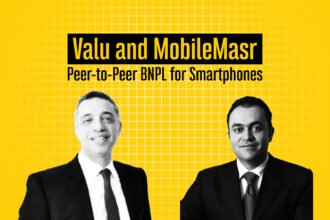The journey from Lahore’s bustling tech hubs to Riyadh’s rapidly evolving digital landscape is more than just a geographical shift—it’s a strategic leap into a market brimming with opportunities and challenges. As Pakistani startups eye expansion into Saudi Arabia, understanding the nuances of this transition becomes crucial.
Why Saudi Arabia? The Magnetic Pull for Pakistani Startups
Saudi Arabia’s Vision 2030 has set the stage for a diversified economy, emphasizing sectors like technology, healthcare, and logistics. For Pakistani startups, this translates into a fertile ground for growth, collaboration, and innovation.
- Economic Diversification: The Kingdom’s shift from oil dependency opens doors for tech-driven solutions.
- Strategic Location: Serving as a gateway to the broader MENA region, Saudi Arabia offers access to a vast market.
- Investment Opportunities: With initiatives like the Sanabil Investments and the Public Investment Fund (PIF), there’s a surge in funding avenues for startups.
Saudi Arabia’s startup ecosystem is growing at an unprecedented pace, making it a magnet for regional entrepreneurs. In 2023 alone, Saudi startups raised $1.38 billion, accounting for nearly 52% of all VC funding in the MENA region, according to MAGNiTT. The Saudi VC market has expanded nearly 20x since 2018, driven by aggressive government initiatives like Monsha’at, PIF-backed Sanabil Investments, and the National Technology Development Program (NTDP).
According to the Annual Fintech Report published by Fintech Saudi, the number of fintech companies operating in Saudi Arabia reached 216 by the end of 2023. This marks a significant increase from 147 companies in 2022, representing a 47% year-over-year growth. This expansion reflects the Kingdom’s commitment to fostering innovation and expanding its digital economy.
Moreover, the Kingdom ranks second in MENA for ease of doing business, per the World Bank, and Riyadh has been earmarked as one of the top 10 cities globally for future tech investment by Kearney’s Global Cities Report.
Navigating the Saudi Market -A Step-by-Step Roadmap for Pakistani Startups
Breaking into the Saudi market can unlock major growth for Pakistani startups—but it requires more than just a good product.
Comprehensive Market Research
- Understand local consumer behavior, regulatory frameworks, and competitive landscapes.
- Utilize resources like the Dastak Accelerator’s Market Access Program for in-depth insights.
Legal and Regulatory Compliance
- Familiarize with the Saudi Arabian General Investment Authority (SAGIA) requirements.
- Ensure adherence to local laws, especially in sectors like healthcare and finance.
Strategic Partnerships
- Collaborate with local businesses, distributors, and investors to build credibility and facilitate smoother market entry.
Cultural Sensitivity and Localization
- Adapt products and services to align with Saudi cultural norms and preferences.
- Consider language localization and culturally relevant marketing strategies.
Talent Acquisition and Team Building
- Evaluate the benefits of hiring local talent versus managing remote operations.
- Invest in training programs to bridge any skill gaps and ensure team alignment with company values.
Spotlight on Success – Case Studies of Pakistani Startups in Saudi Arabia
As more Pakistani startups look to expand beyond local borders, Saudi Arabia is becoming a top destination for regional scale. Let’s take a closer look at three standout startups—MedIQ, PostEx, and Blink—and break down exactly how they are navigating the Saudi market.
Case Study 1
MedIQ – Digitizing Healthcare for the GCC
Origin: Islamabad, Pakistan
Sector: Healthtech
Saudi Focus: B2B virtual healthcare infrastructure for hospitals, insurers, and employers
Founded by: Dr. Saira Siddique, Pakistan’s first female healthtech founder
Funding Raised: $6 million Series A (2024)
Key Saudi Collaborations: Dr. Sulaiman Al Habib Medical Group, Elm, Almana Hospital Group
What’s the Problem MedIQ Solves?
MedIQ provides plug-and-play virtual health infrastructure for organizations—helping digitize patient consultations, diagnostics, e-prescriptions, and medicine delivery. This is especially useful in Saudi Arabia, where large institutions are racing to upgrade digital health services in line with Vision 2030.
Saudi Market Entry Strategy
- Localization: MedIQ adjusted its offerings to align with Saudi insurance workflows and hospital SOPs, integrating Arabic language support and local compliance frameworks.
- Partnership-Led Growth: They secured partnerships with Elm (a government digital services company) and top-tier hospital groups, which helped boost credibility and reduce time to market.
- Focus on Corporate Health: They tailored packages for large employers and insurance players, a major healthcare buyer segment in the Kingdom.
What Made It Work?
Dr. Saira Siddique points to a “boots-on-ground” approach—regular founder travel to Riyadh and in-country hires helped them adapt faster and gain trust. Saudi partners valued their hybrid (online + in-person) care model over pure telehealth, which gave them a competitive edge.
Key Lesson
If you’re a healthtech startup, don’t just “translate”—rebuild your workflows for the Saudi ecosystem, especially around compliance and insurance.
Case Study 2
PostEx – Fintech Meets E-Commerce Logistics
Origin: Lahore, Pakistan
Sector: Logistics + Fintech
Saudi Focus: Embedded financing + logistics for e-commerce sellers
Founded by: Omer Khan
Funding Raised: $8.6 million total to date
Saudi Rollout: Planned for Q3 2025
Key Saudi Moves: Applied for SAMA license, local pilot with online merchants underway
What’s the Problem PostEx Solves?
PostEx offers a Buy-Now-Pay-Later meets courier solution for online sellers. In Pakistan, many e-commerce sellers struggle with long cash cycles due to cash-on-delivery (COD). PostEx provides fast logistics with advance payouts, reducing the wait time for revenue.
Why Saudi Makes Sense
Saudi’s e-commerce scene is growing rapidly—with $13.4 billion in revenue forecast for 2025. But over 60% of orders are still COD. That means cashflow challenges for merchants—exactly what PostEx solves.
How They’re Localizing
- Regulatory First: They applied for a fintech license from the Saudi Central Bank (SAMA), essential to operate their financial services.
- Cultural Insight: Their team learned that trust in logistics providers is even more sensitive in Saudi—delivery delays can quickly damage a brand.
- Pilot-to-Scale: Instead of a full-blown launch, they’re starting with a pilot cohort of online sellers to refine operations and build case studies.
What Made It Work?
Rather than rushing in, PostEx took a compliance-led approach and opened conversations with regulators, advisors, and partners early. They hired local consultants to help navigate licensing and understand market expectations around service quality.
Key Lesson
In fintech + logistics, Saudi regulators matter. Start your compliance journey before you land.
Case Study 3
Blink – White-Label SaaS for Restaurants
Origin: Karachi, Pakistan
Sector: SaaS for F&B
Saudi Focus: Direct ordering platform for restaurant chains
Founded by: Syed Sair Ali and Hammad Rafiq
Funding Raised: $2.1 million Seed
Saudi Presence: CEO relocated to Riyadh, 60% of MENA client base from Saudi
What’s the Problem Blink Solves?
Many restaurants lose margins to third-party delivery aggregators (like HungerStation or Jahez in Saudi). Blink offers a white-label solution so restaurants can run their own branded apps, accept orders directly, and keep their data + margins.
Saudi Entry Strategy
- Founder Relocation: Co-founder Syed Sair Ali moved to Riyadh to lead client relationships and business development personally.
- Restaurant-Focused GTM: Instead of chasing small eateries, Blink targets large chains like pizza or burger brands with 10+ branches.
- Customized Product Suite: Blink tailored its dashboard, payment flows, and loyalty systems to Saudi customer behavior—like pre-Ramadan menus or national day offers.
Why Is It Working?
Blink’s Saudi clients see a 20-30% boost in profit margins by going direct. Many are also gaining control over customer data and retention.
Bonus Insight
Restaurants in Saudi are often family-run and tight-knit. Blink’s strategy of hiring local account managers who speak the dialect and understand the market helped build trust faster than remote calls ever could.
Key Lesson
In SaaS, founder-led sales work wonders in Saudi Arabia—especially when combined with a product tailored for local business habits.
Saudi E-Commerce Market Insights
Saudi Arabia’s e-commerce landscape is expanding rapidly, driven by high internet penetration and a tech-savvy population.
Here’s a quick look at key figures that highlight the market’s potential for online retail growth.
- Market Size: Saudi Arabia’s e-commerce revenue is projected to reach $20.04 billion by 2025, with a user penetration rate expected to hit 70.9%.
- Consumer Behavior: The average revenue per user (ARPU) in the e-commerce market is anticipated to amount to $532.80, indicating a robust online shopping environment.
Fundraising Across Borders – Lessons from Founders
Securing funding in a new market comes with its set of challenges and learnings.
Understanding Investor Expectations
- Saudi investors often prioritize startups that demonstrate a clear commitment to the local market.
- Building relationships through local events and networking can be instrumental.
Leveraging Cross-Border Opportunities
- Participate in programs like the Sanabil Accelerator to gain exposure and access to funding.
Transparent Communication
- Maintain open lines of communication with potential investors, clearly articulating your value proposition and growth plans.
Cultural and Business Etiquette -What Surprises Founders Most
Entering the Saudi market requires more than just business acumen; cultural understanding is paramount.
Relationship Building
- Business in Saudi Arabia often revolves around trust and personal relationships.
- Invest time in building genuine connections before diving into transactions.
Pace of Business
- Decision-making processes may differ, with a preference for thorough deliberation.
- Patience and persistence are key virtues.
Respect for Traditions
- Being mindful of local customs, religious practices, and societal norms is crucial.
- This respect can significantly influence business success and acceptance.
Final Thoughts – Charting the Path Forward
The journey from Lahore to Riyadh is emblematic of the broader aspirations of Pakistani startups aiming to make a mark on the global stage. While the Saudi market offers immense opportunities, success hinges on thorough preparation, cultural understanding, and strategic partnerships.
As we reflect on these insights, one question remains:
How can Pakistani startups not only enter but also thrive and lead in the Saudi market, setting benchmarks for cross-border innovation?




